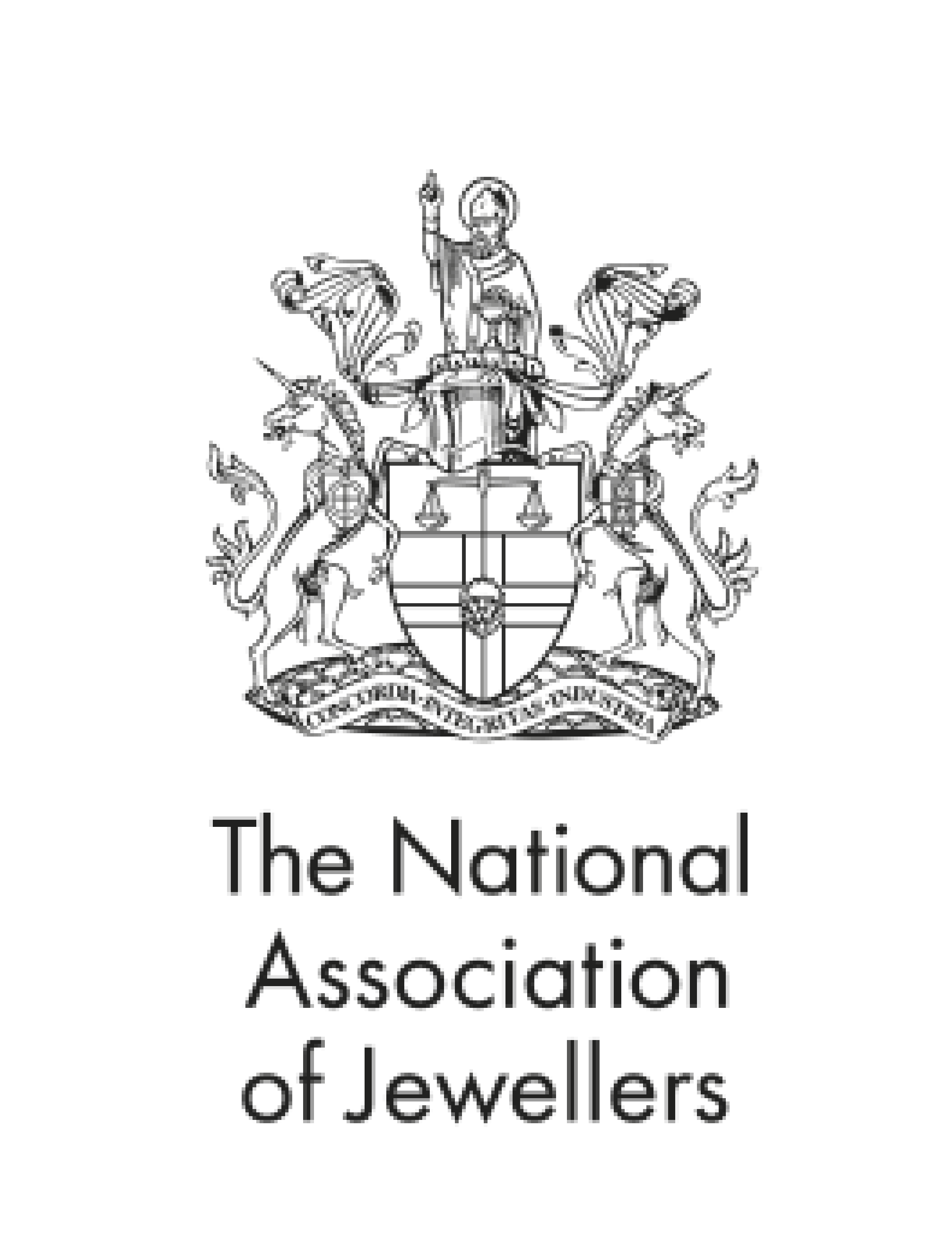Surrounded by the stunning views of Dartmoor and the Cornish Coasts, we have always found ourselves captivated by nature-themed jewellery. Lush green fields and blooming flowers are inspirational muses to artists and jewellers around the coast. Jewellery in the South West is a reflection of the natural beauty it is surrounded by.
Though, not all jewellery was the precious stones and elegantly crafted metals that we know of today. Originally, jewellery was created from the local environment, and commonly made from more accessible materials like animal bones, teeth, claws, stones and shells.
Jewellery in Ancient Civilisations
One of the earliest known existence of jewellery are drilled shell beads, found in the Bizmoune cave in present-day Morocco. Though unknown whether these shell beads were worn for a purely decorative purpose, or to signify a status symbol, the conscious choice of sea snail shells are believed to be once part of earrings or a necklace.
Ancient Egyptians, fashioned metals like gold and silver to show wealth and status, creating intricate designs in the pattern of flowers or leaves in their jewellery. Infamously, Queen Cleopatra was renowned in her gold adorned outfits and her favourable green emerald pieces. Explore more about the world of emeralds and Cleopatra’s choice of precious stone in our article “Evergreen Glamour: A Guide to Emeralds.”
Brands that are inspired by natural world
Nature has been embedded into our everyday styling for millennia, so, it is no surprise that with our advanced jewellery making techniques, today designers and jewellers take inspiration from the world around us.
Art, Nature and Symbolism in Jewellery: Iconic Nature Inspired
Art, nature and jewellery work in tandem. With the natural elegance of leaves, waves, and creatures, often reimagined in precious metals and stones, or brought to life on canvas, jewellers and artists celebrate nature’s balance and intricacy.
This deep connection not only honours the natural world but also evokes a sense of timelessness and harmony, elevating each influence into a wearable or visual expression of the earth’s artistry.
Girl with the Pearl Earring and Mikimoto


Girl with a Pearl Earring, painted by Johannes Vermeer in 1665, captures a moment of serene beauty and mystery. Featuring a striking piece of jewellery amongst subtle tones and a refined canvas evokes an understanding of social standing and exotic allure of the subject. The pearl earring commands attention and symbolises purity, wealth, and timeless elegance.
Purity and timeless elegance are qualities central to the vision of pearl pioneer Kokichi Mikimoto, who transformed these ocean gems into iconic jewellery in 1893 through pearl cultivation. Over 160 years later, Mikimoto’s legacy of cultured pearls lives on, based on the aptly named ‘Mikimoto pearl Island’ in Toba, Japan, cultured pearls are hand-harvested from the sea by Ama (Sea Women) for jewellery pieces.
Just as Vermeer captured light and emotion through a single pearl, and highlighting the beauty of the subject, Mikimoto elevated pearls to objects of everyday luxury, bridging art and adornment with pieces that continue to echo the painting’s quiet allure.
Today, Mikimoto continues to create love letters to the sea through their beautiful pieces of jewellery . The Vintage Akoya Cultured Pearl & Diamond Drop Earrings frame the wearer's face, whilst adding an elegant and vintage touch.
Georg Jensen & Monet’s Grapes and Apples


Claude Monet’s Apples and Grapes captures the quiet richness of nature’s bounty, rendered with his signature impressionist light and texture. The composition evokes abundance, simplicity, and an intimate appreciation of organic form. Iconic to the style of Monet, Grapes and Apples, the texture and technique used highlights the beauty in still life, whilst combining complementing colours.
Similarly, Danish jeweller Georg Jensen drew inspiration from nature’s elegance, notably in his iconic Moonlight Grape collection jewellery. Their earrings and necklaces feature sculptural clusters of silver grapes, flowing and reminiscent of the Art Nouveau period of the early 1900s.
Like Monet’s still life, Jensen’s designs transform everyday natural elements into enduring works of art, harmonising craftsmanship, form, and the timeless allure of nature’s quiet sophistication.
Gucci’s Iconic Bee Motif
Bees hold a wealth of history through symbolism in nature, jewellery, art and even architecture. Known as a symbol of harmony, prosperity and strength and unity, bees have stood as a timeless. In nature, bees are the biggest pollinators of foliage and fauna and agriculture.
The symbolism of bees was strong in Rome, connected to the divine world and Roman goddesses like Aphrodite, Artemis and Rhea. Famous General, Napoleon Bonaparte, also chose to adopt the bee motif as the imperial emblem to signify continuity with the Roman Empire.
Today, Italian design house, Gucci, have adopted the motif to their contemporary and modern look. The bee has appeared across Gucci's designs, from embroidered motifs on apparel to intricate detailing on handbags, and jewellery.
In particular, some Gucci G-Timeless watches feature the bee delicately engraved or embossed onto dials and cases, marrying Swiss precision with a flourish of Italian symbolism.
Michael Spiers: Foliage and Fauna
At Michael Spiers, in tribute to nature's beauty, we host a variety of elegant jewellery pieces. Our Daisy Clusters and crafted Fern Leave necklace honours the natural world, and highlights the beauty in our everyday.
The evoking nature of a leaf’s life, to grow, flourish and then fall, represents change, transformation and healing. Our exquisite Diamond Leaf Necklace is inspired by the shape of a fern. Ferns symbolise new beginnings, growth and enduring power. Their resilience to conditions makes them a symbol of strength, and, a perfect piece to add to any collection as a statement piece. The eye-catching design flows from your neckline, with delicate sparkles to accentuate the intricate details of each spine on the leaf, honouring the small detailings of the natural world through jewellery.
We also pay homage to flowers in our Daisy cluster rings, and our specially crafted Emerald and Diamond Flower Cluster Ring. Each petal is made from Emeralds, and centres to a Diamond. The striking green of the emerald alludes to the natural green of the earth, and, by incorporating these precious, earth made stones into our jewellery, the wearer can feel even more connected to the natural world around them.
Daisies are symbols of purity and new beginnings, their white petals symbolise innocence, similar to our Daisy Cluster Ring that boasts seven dazzling diamonds. Daisy Clusters are aptly named as the jewellery looks similar to that of a daisy. With a central gem surrounded by other, similarly sized gems, the curves resemble that of a daisy and its petals.
Jewellery Inspired by Nature: An Ageless Look
Nature inspired jewellery will always hold a timeless look. Honouring the world around us through precious stones or gems to crafting intricate designs representing foliage and fauna, paying homage to nature is an art.
If you are interested in fashioning your summer look with a jewellery piece of timeless beauty, we invite you to visit one of our showrooms in Truro, Plymouth, Exeter, or Taunton to find a piece that connects with you.









